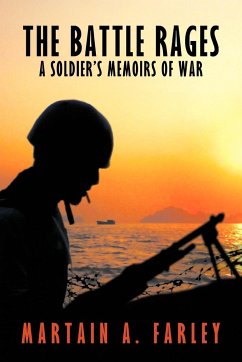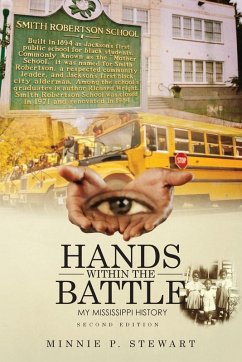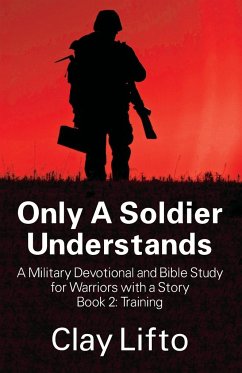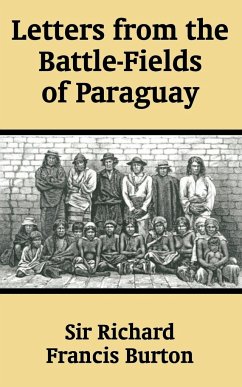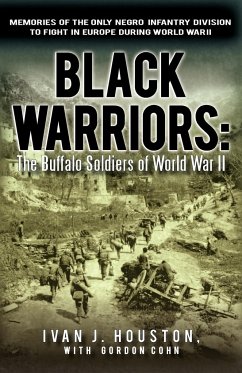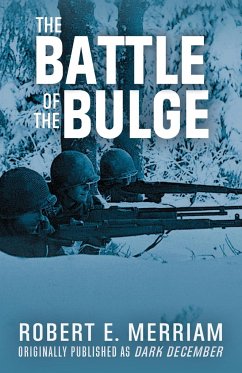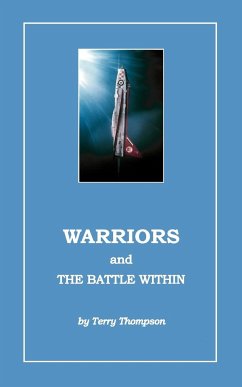
Terry Thompson
Broschiertes Buch
Warriors and the Battle Within
Versandkostenfrei!
Versandfertig in 1-2 Wochen

PAYBACK Punkte
12 °P sammeln!




The story of one Canadian who was engaged in the Cold War from his youth through his career path to the lamentable demise of Canada's proud armed forces.
Terry Thompson found his beginnings in small towns on the prairies during the forties. His memoir describes his early life in the rural communities of the west, the assertion of his independence and his quest for adventure. He describes his basic training as an airman in the RCAF leading to pilot training and his commission in the air force. His adventures during his early days in the service are not unlike that of others who joined Canada's military during the evolution of the cold war. They were all young men who believed in their country and had been instilled with a duty to defend democracy in an unsettled world. The author witnessed most aspects of the cold war from a military perspective. In his two tours at National Defense Headquarters, he was able to observe first-hand the wilful dismantling of the military structures leading to the lamentable state of today's armed forces. Following his retirement from the Canadian Forces in 1981 after thirty-one years of service, he participated in a variety of special events. These include: Logistic Consultant to the CBC for the Papal visit to Canada in 1984; Producer of Ceremonies of EXPO 86 in Vancouver, the 1988 Winter Olympics in Calgary and the 1990 Goodwill Games in Seattle. Following the Goodwill Games he was appointed Executive Director of Rendezvous 92, the northern celebration of the 50th Anniversary of the Construction of the Alaska Highway. Terry Thompson lives in Calgary and has established himself as a critical observer of Canadian defence and foreign policies. Table of Contents or Excerpts Foreword The letter I received from Holland in 1998 was my inspiration and once the idea caught on I couldn't put it away until I had finished the story. It was from Jan Van Rossum du Chattel, a fellow student on my NATO pilot training course in 1953/54. I set about preparing my reply and as I toiled over my keyboard, other incidents in my air force career began to pop to mind. With the zest of an ageing fighter pilot who can no longer leap over tall buildings or across fast flowing rivers, I have approached the task of recording these stories with as much fervour as my first entry into an attack on the flag* from the high perch. The stories have in fact been woven together to provide an account of my experiences as I remember them. But I think they are more than that. They represent the experiences of an average Canadian youth of the day who intimately remembered the images of World War II. A prairie boy who grew up close to the farm and like the thousands of others from across Canada, responded to the nations need to rebuild a military capability that had briefly languished following WW II. I think our stories are all similar and it would be a loss if some of them were not preserved for future generations. We joined the armed forces when only an unsteady peace existed. There was a war in far off Korea. Elsewhere there were wars and rumours of wars. The allies and the Soviet Union were engaged in nuclear weapons testing, threats and posturing. The arms race was on in earnest and only the strong would survive. Western governments encouraged their populations to build private nuclear shelters and issued plans and specifications to those who wished to attempt to survive in their basements or backyards. Governments built bunkers to protect legislators from nuclear attack, plans were put in place to re-establish social order following a nuclear exchange. The atmosphere of the western world was tense and democracy was tested regularly by those intent on world domination by any means. Within this context the Canadian youth of the forties and fifties faced the escalating "Cold War." They were patriotic and intent on defending Canada and North America until th
Produktdetails
- Verlag: Trafford Publishing
- Seitenzahl: 380
- Erscheinungstermin: 9. Februar 2004
- Englisch
- Abmessung: 203mm x 127mm x 22mm
- Gewicht: 456g
- ISBN-13: 9781412014748
- ISBN-10: 1412014743
- Artikelnr.: 22188840
Herstellerkennzeichnung
Libri GmbH
Europaallee 1
36244 Bad Hersfeld
gpsr@libri.de
Für dieses Produkt wurde noch keine Bewertung abgegeben. Wir würden uns sehr freuen, wenn du die erste Bewertung schreibst!
Eine Bewertung schreiben
Eine Bewertung schreiben
Andere Kunden interessierten sich für


